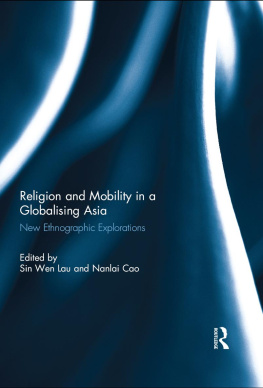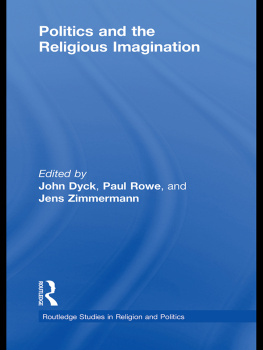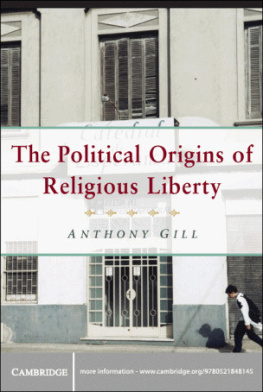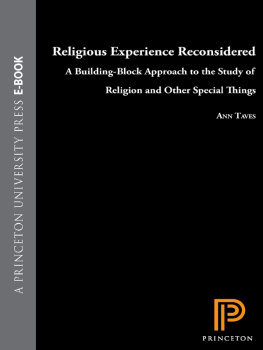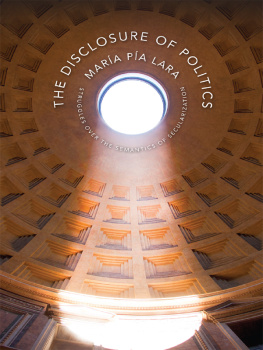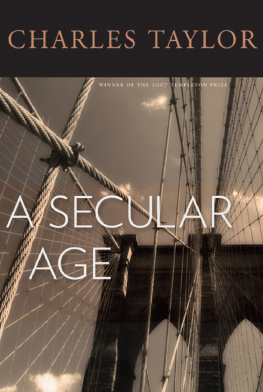First published in 2010 by
Berghahn Books
www.berghahnbooks.com
2010 Berghahn Books
First ebook edition published in 2012
Originally published as a special issue of Social Analysis, volume 53, issue 1.
All rights reserved.
Except for the quotation of short passages for the purposes of criticism and review, no part of this book may be reproduced in any form or by any means, electronic or mechanical, including photocopying, recording, or any information storage and retrieval system now known or to be invented, without written permission of the publisher.
Library of Congress Cataloging-in-Publication Data
Contemporary religiosities : emergent socialities and the post-nation-state / edited by
Bruce Kapferer, Kari Telle, and Annelin Eriksen.
p. cm.
Includes bibliographical references and index.
ISBN 978-0-85745-130-9 (pbk. : alk. paper) -- ISBN 978-0-85745-534-5 (ebk.)
1. Religions. 2. Religion and sociology. 3. Religion and politics.
I. Kapferer, Bruce. II. Telle, Kari. III. Eriksen, Annelin.
BL74.C66 2010
200dc22
2010028098
British Library Cataloguing in Publication Data
A catalogue record for this book is available from the British Library.
ISBN 978-0-85745-130-9 paperback
ISBN 978-0-85745-534-5 ebook
INTRODUCTION
Religiosities toward a Futurein Pursuit of the
New Millennium
Bruce Kapferer, Kari Telle, and Annelin Eriksen
Benedict Anderson once commented that nationalism was the modernist political movement that appeared to have had the most resilience contrasted with other political ideological movements of the time. Anderson ([1983] 1991) was writing when the nation-state, whose imaginary of community and shared history and identity constitutes a transcendent ideal, was in the ascendant. Encouraging and/or inventing such a nationalist consciousness, the agents of state power often strove to create and to legitimate the social order of the state within the terms of a nationalist consciousness, augmenting their authority and potency accordingly. In many instances, the agents and the agencies of the state were able to excite a degree of religiosity in nationalist idealsoften with disastrous and tragic results. Despite the religiosity of much nationalism, it was usually explicitly secular, eschewing overt commitment to religion (see Kapferer 1988). Many nationalisms implicated religious or cosmo-ontological orientations embedded in religious practice in the articulations of their consciousness. These orientations were subordinated to, and their meaning was fashioned by, the political pragmatics and processes of state power. As a broad statement, insofar as religion is connected to the political interests of the nation-state, it is the political that plays the key role in defining the relevant aspects of the religious. Modern nationalisms, such as those of Israel or the Buddhist nationalism of Sri Lanka, are expressions of the religious largely constrainedand definedwithin the terms of the political order of the state. In other words, it is chiefly political concerns that determine or create the particular import given to religious ideas, engaging them with the purpose of legitimizing actions that are decided largely independently of the religious. Overall, nationalism, which often shared a passionate intensity with religion, whose metaphors it frequently engaged, was a secular force that displaced the religious.
A view of many commentators is that if religion, at least in the West, once appeared to be increasingly a feature of a bygone age, it now appears to be staging a comeback. Moreover, if the abandonment of religion might appear to define the current secular age (Taylor 2004, 2007), the return of religion, in the opinion of some, is threatening a secular trend that has been seen as progressive. Contemporary secularistssome of whom, including the neo-Darwinist philosopher Daniel Dennett and the biologist Richard Dawkins, display a religiosity of their own, albeit of a scientific-rationalist varietyare attempting to push back what they see as a re-encroachment of religion, often in a manner reminiscent of similar debates in the Victorian era and into the early part of the twentieth century. In Britain, rationalist and avowedly anti-religious secularists, supporters of Dawkins's own personal crusade, have taken to parading through the streets in a London bus across which is hung a large-lettered sign proclaiming, THERE IS PROBABLY NO GOD. By opposing their scientific conviction of radical doubt to the certainty of religious truth, they enthusiastically mimic much militant and populist religious practice. Yet in so doing they reveal a not dissimilar fundamentalism.
Such rationalist and secularist protest is motivated by the growth of popular support for creationism, especially in the US, and by the apparent link of fundamentalist religious movements with reactionary and repressive social and political processes, which is evident globally. Al-Qaeda terrorism, the fundamentalist regime of the Taliban, and the emergence of the politically powerful Christian right in the US have led some critics to note that religion is achieving a return to its totalizing, mystifying, and emotive intensity of the past, even realizing once again a theological political potency (see Lilla 2008). If such is the case, we insist that this is not a recidivist, back to the future processa strong implication of some criticism. Rather, it is a dimension of contemporary circumstances that could be described as thoroughly postmodern.
There seems to be a link between what appears to be the return of the religious and reconfigurations of political and social realities attendant on what is loosely referred to as globalization. That is, the increasing power of religion in the framing, organization, and motivation for social and political action may be associated with the break-up and fragmentation of formerly dominant sociopolitical orders and the social dislocations, redistribution and movement of populations brought about by such developments.
In these situations, social and political alienation, poverty, and a myriad of other kinds of uncertainty and suffering drive an appeal to the religious, which has always thrived on such experience. The soteriological directives, ideas, and objectives of most religions everywhere aim to alleviate, overcome, or redress anxieties and uncertainties largely produced and driven in a variety of social and political processes. This kind of understanding is almost canonical in anthropology. Periodical bursts of religious enthusiasm and the formation of new religions (e.g., millenarian cults) at intense points of change or at times when the very conditions of life are threatened (e.g., populations disrupted by colonial invasion, the violent upheavals of war, pestilence, etc.) are widely recorded by historians, anthropologists, and sociologists.
The current return of the religious can be grasped as another instance of the emergence of the religious at a moment of crisis. This is likely to be an enduringly repeated phenomenon for the teleological reason that religion is thoroughly concerned with the crises of human existence as such. As Rappaport (1999) argues, religion is integral to humanity, as it addresses existential dimensions of life and its circumstances, offering resolutions that will always be in excess of any other rationalistic orientation. Indeed, other forms of the human creative imaginary, even those avowedly opposed to religion, are themselves vulnerable to the very kind of religiosity of which they may be critical, involving similar circularities in reasoning and cries of faith. Capitalism and the belief in economic rationalism often have more than a millenarian and religious ring to their discoursesas Jean and John L. Comaroff (2001), among others, have elaboratedespecially today in a context of looming global market depression.


